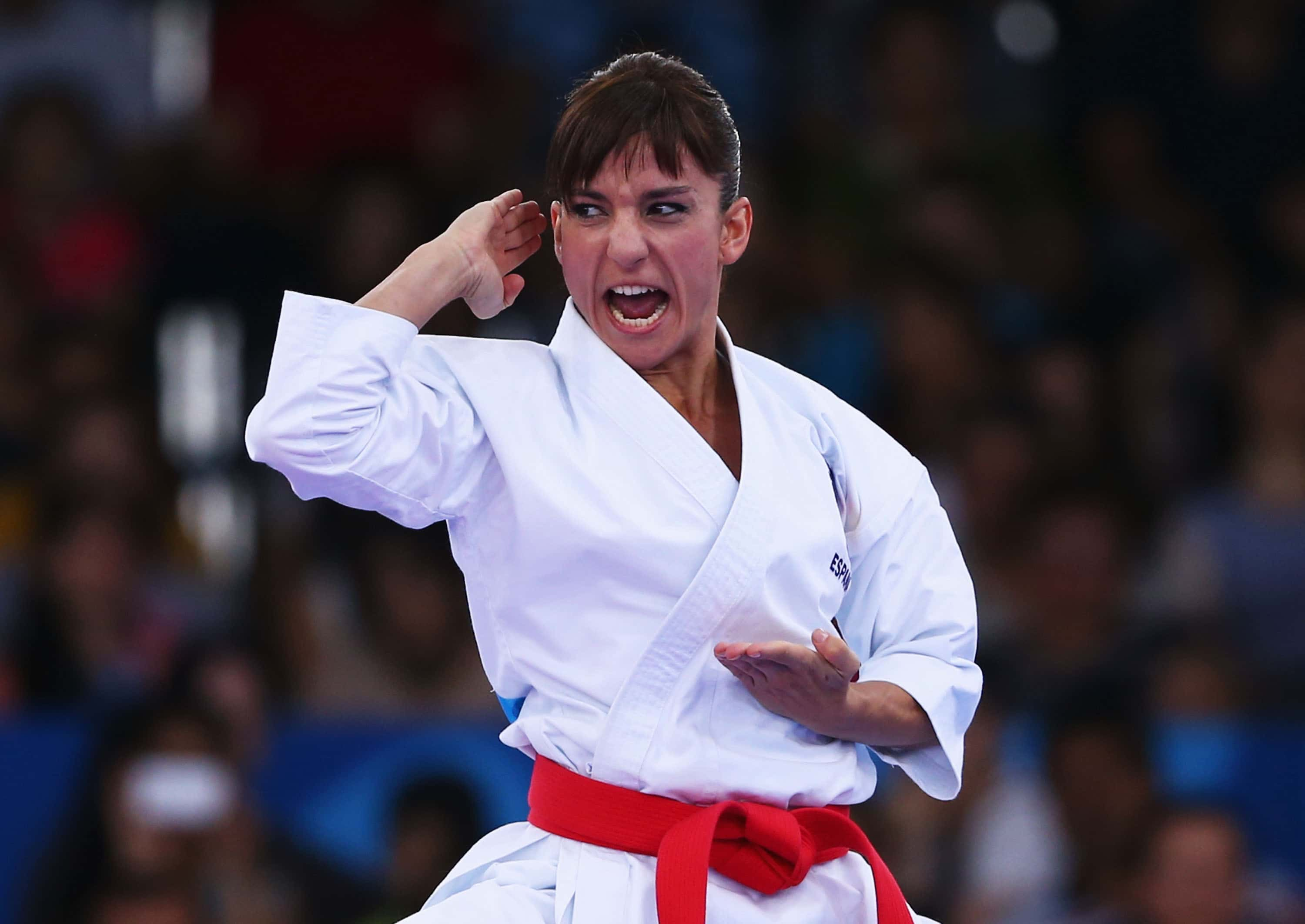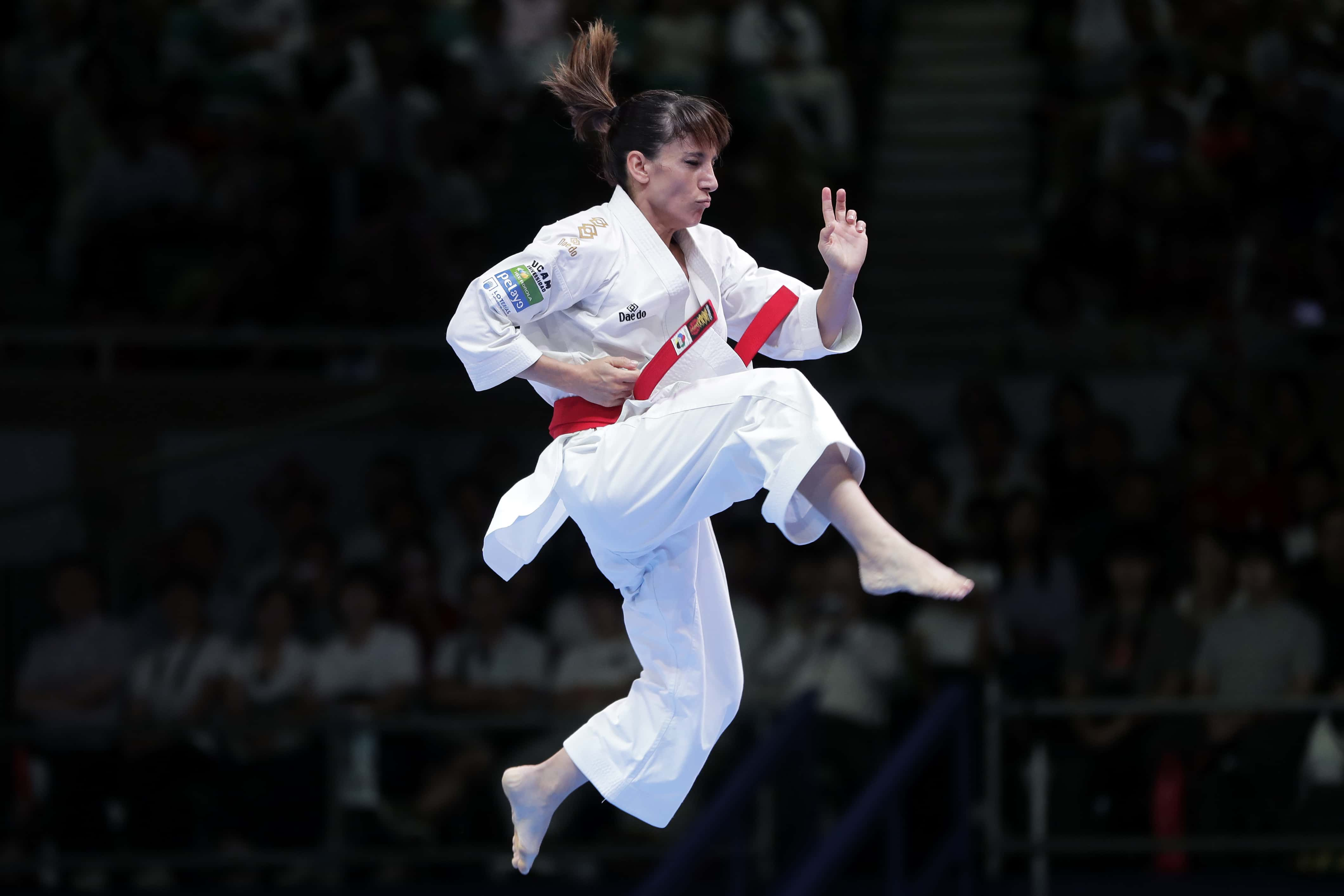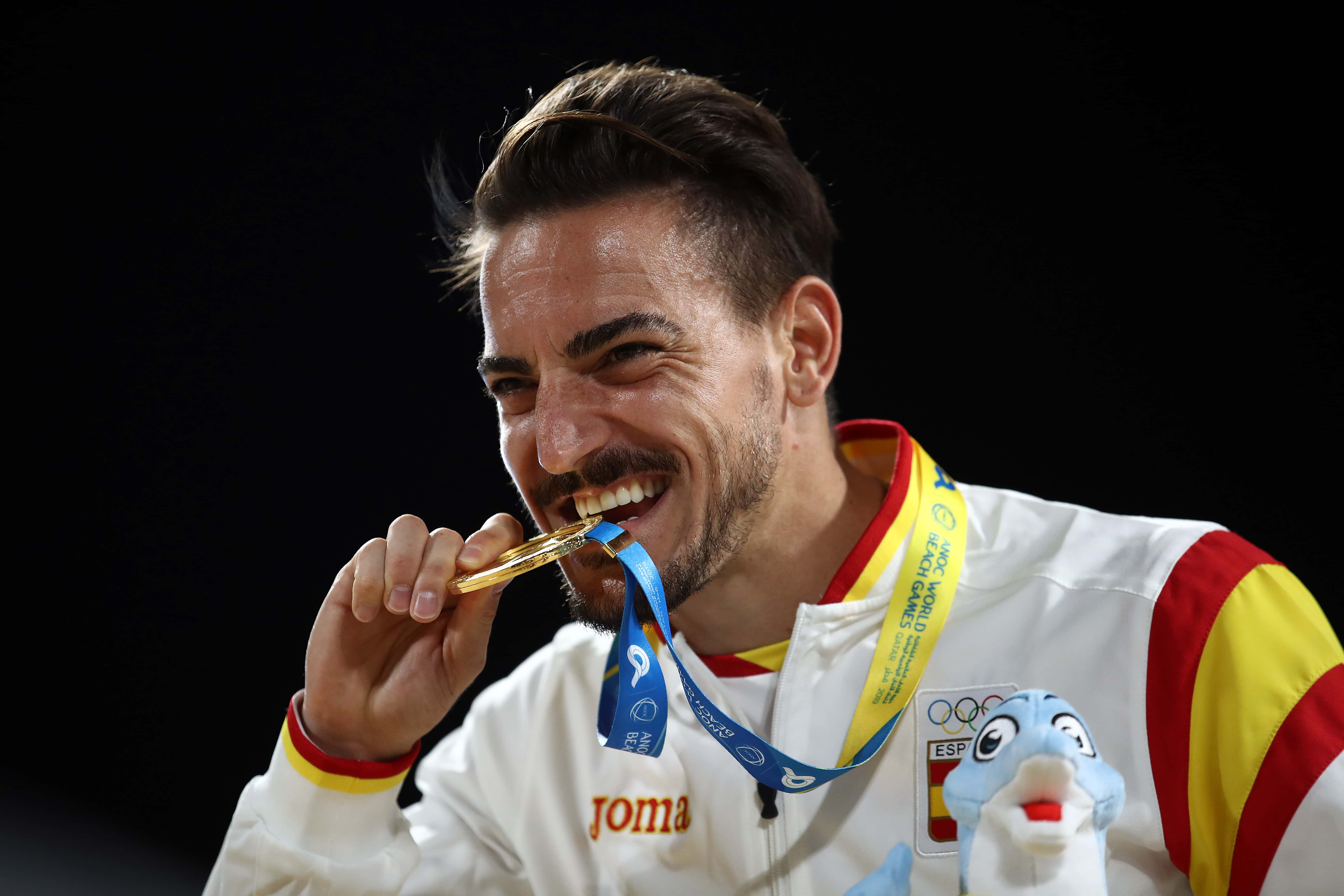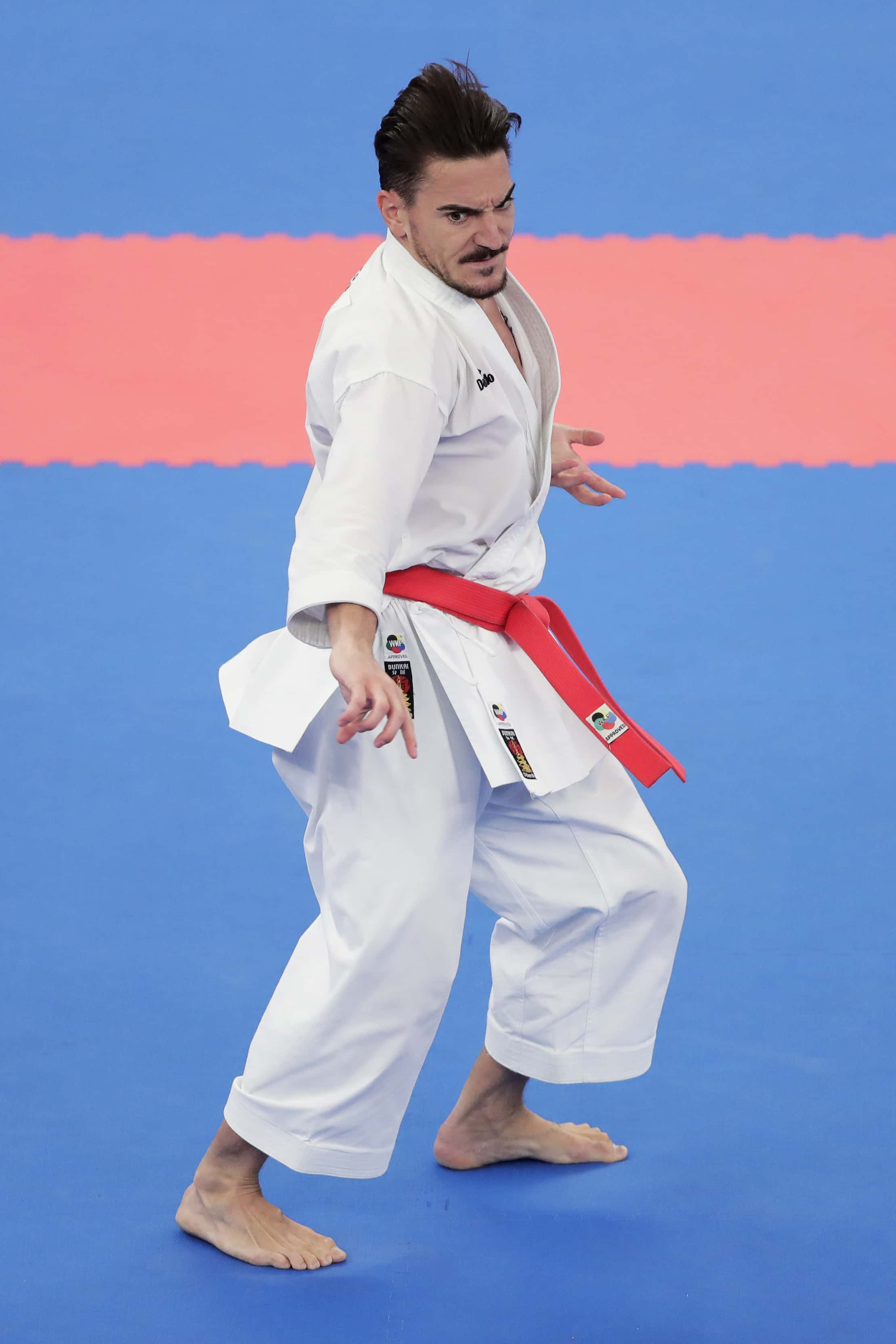Tokyo Olympics: Sandra Sánchez and Damián Quintero, who is the best karate fighter?

After a year of delay, the Olympics is finally happening in Tokyo, Japan. The international multi-sport event will start on July 23 and end on August 8. This year’s competition is adding a number of sports and one of them is karate, whose place of birth is Japan. The ancient martial arts is also one of the most popular sports across the globe.
According to reports, nearly 80 athletes are taking part in karate -- 60 in the Kumite and 20 in the Kata event. Spaniards are believed to be the strongest claimants of the gold medals in the Kata category in both the male and female categories. Sandra Sánchez and Damián Quintero are on top of the Kata world ranking.
READ MORE
Tokyo Olympics: Gabby Thomas to Grant Holloway, top 10 track and field athletes to watch
Tokyo Olympics Team USA: Ten young stars to look out for at Summer Games
Who are Sandra Sánchez and Damián Quintero?
The 39-year-old Sánchez won the 2018 World Championships in the women's individual Kata event. Besides, she is also a five-time European champion. She has been called the “greatest of all time” by the World Karate Federation. About the Tokyo Olympics, Sanchez told the Olympic Channel in 2019: “Tokyo is the dream that gets more real with every day that passes.”

Born in the city of Talavera de la Reina, Sanchez said her journey was anything but easy. She fell in love with karate when she was just four. But her parents enrolled her in ballet classes while her brother Paco was allowed to practice for the sport.
“My parents decided that my brother and I should both do some sort of extra-curricular activity. My brother was enrolled in karate and I was signed up for ballet. One thing I've always said during my life is: ‘If Paquito can do it, then I can, too.’ That's why I went with him and stayed to watch the class. To start with, my parents thought I was having a tantrum: ‘We'll take her to karate for a few days, and when she gets over it, she can go back to dancing.’ But I stuck with the karate. These days, my brother is still proud to say: ‘You're the world champion because of me,’” she once told Iberdrola.
Sanchez also explained why until the age of 32, she was not selected for the national team. She added: “I always entered myself for the Spanish championship and managed to win medals, but for one reason or another I was never selected for the national team. Either as an individual or in a team. Of course, it was disappointing because sometimes you train very hard and even so, they still say no and no again. But this just motivated me, because I realized that there was room for improvement and that my karate could get better regardless of whether I won or not and whether or not I managed to get onto the team. It made me stronger and toughened my personality to keep trying and never give up.”

Another favorite in the event is 37-year-old Damián Quintero, who is Karate Kata's World No.1. Quintero will compete in the Kata men's event at Tokyo Olympics. In a 2020 interview with the Olympic Channel, he talked about ‘Cobra Kai’, ‘Karate Kid’, and his training amid coronavirus. At the time, he said, “I really want to watch Cobra Kai, but my wife doesn't really fancy it. We're watching another series together right now, so I'm waiting for a day when I'm alone to enjoy Cobra Kai, the trailer pops up on the opening screen every time and I'd really like to see it.”

Besides, Quintero also said that current times are the "golden age" of Karate Kata in Spain. He explained, “We're in the Olympics, there are lots of grants and support, the press gives us coverage like you calling right now. It wasn't like this 18 years ago when I started.”

About the training in the time of the pandemic, Quintero said: “The physical part was the hardest,” since the elite Olympic training center in Madrid was shut down. He added, “Of course I had a couple of weights that my neighbor lent me, then I was using bottles of water, mop handles, press-ups, pull-ups, but that's not a lot really. I really noticed the loss in weight and musculature. Luckily on the Kata side, the technical part, I have a basement with a tatami mat, it's about 15 square meters so I could train there and not bother my wife in the living room! Almost every day we did double sessions remotely by videocall, with my iPad in the basement, so that part of the training was ok.”










